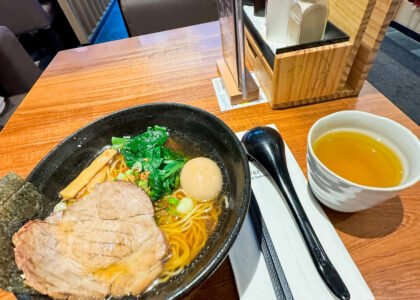


Anchored in Service As part of the 2025 Microsoft’s Intern Celebration Week, we (all the

When I was told that we’d be living at Redmond Town Center (RTC) for the summer as Microsoft Interns, one of the biggest selling points was its unbeatable proximity to a whole world of food.

It is the 1st of November, 2024. I am sitting in the dining area of my home, laptop open in front of me, preparing for what could be a pivotal moment in my professional journey: my interview with Microsoft.

If you’re reading this, it means I’ve officially been at Microsoft for precisely one month. It may also mean that it is late at night, and I am deep in a PowerBI dashboard, or working on my midpoint Connect, but I will spare you the gory details.